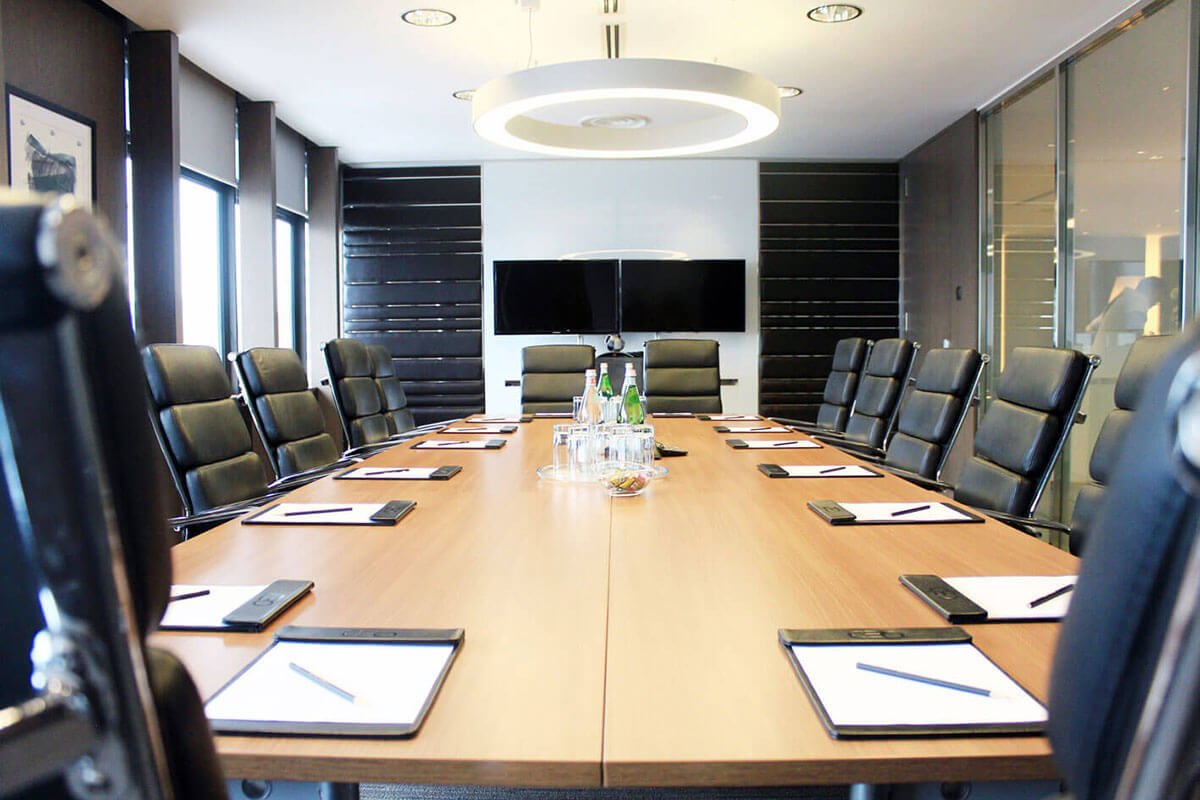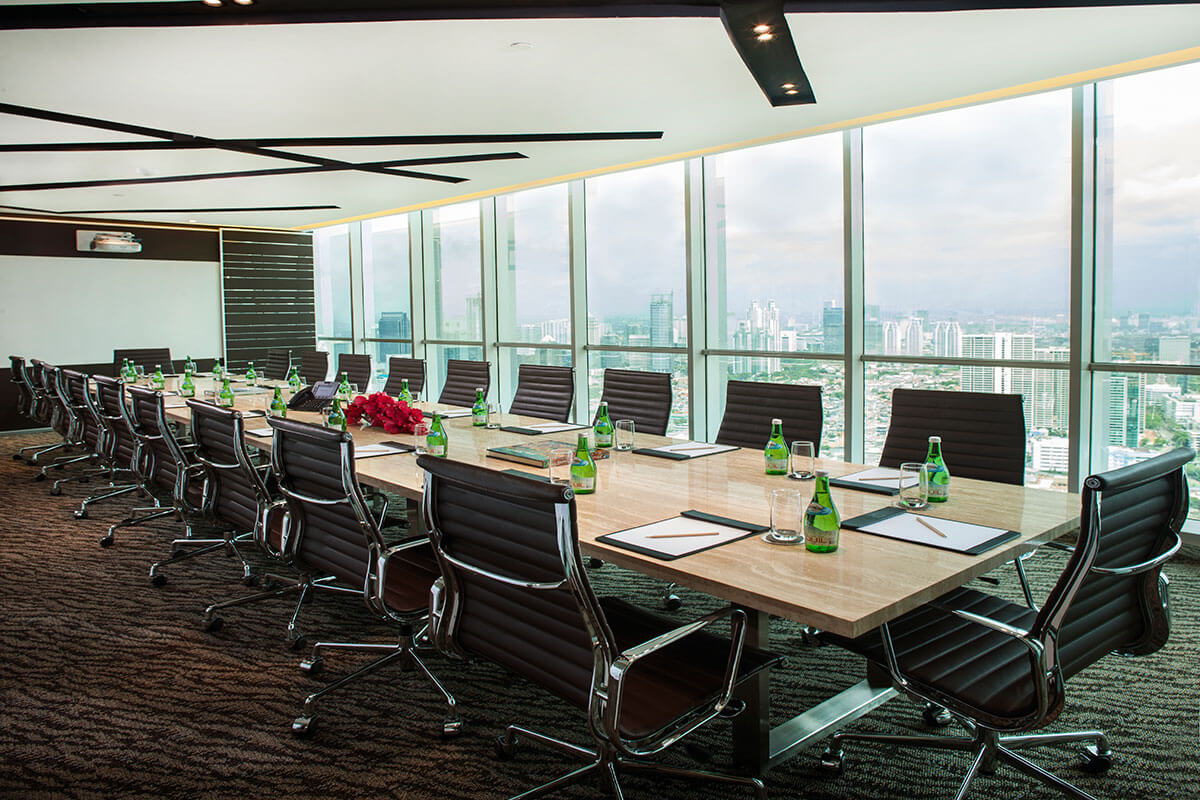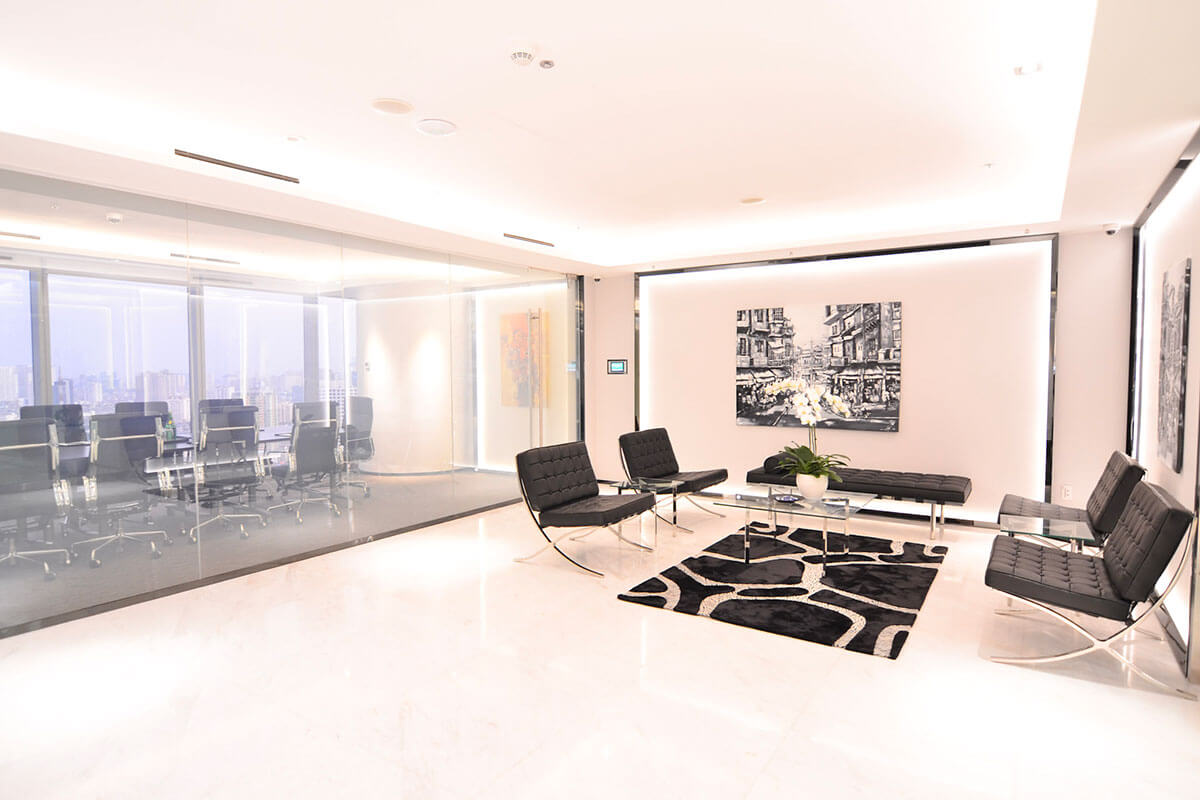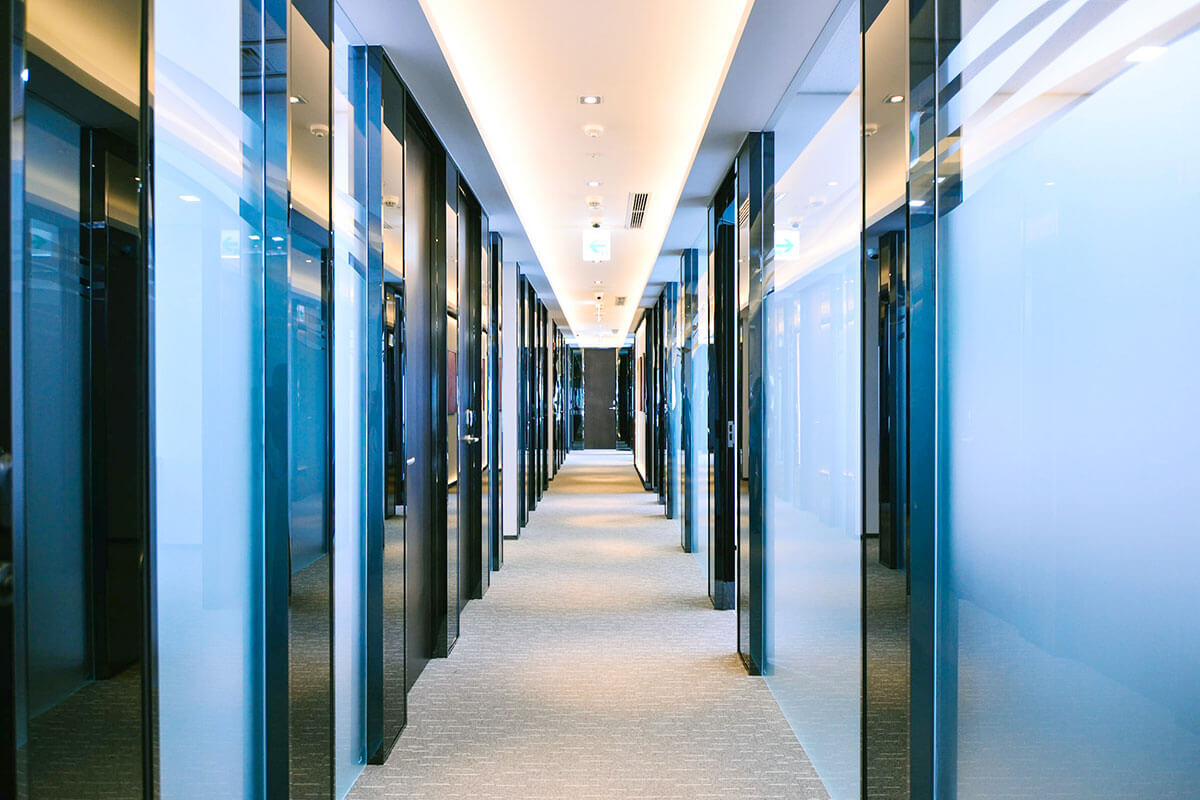The Business of Flexibility
After years of being an employee, May Leong is finally going it alone by starting her own consultancy business. Although she is not particularly picky over where her business is located, her limited finances means renting an office, furnishing it and hiring staff is out of the question.
Meanwhile a telecommunications company in Europe is looking to test the Malaysian market. The company sent one of their top managers Peter Graves to set up an office here.
Graves, however, wants to start work immediately and prefers to be located within the Kuala Lumpur City Centre. As a foreigner, he is unsure of the procedures involved in incorporating a company here and leasing an office nor does he want to bother himself with it – at least not at this early stage.
As such, both Leong and Graves decided to turn to companies that provide serviced offices, the perfect solution for their needs.
Serviced offices?
What are they, you may ask. According to Filippo Sarti, serviced offices provide fully furnished office space, together with other administrative and infrastructure services for companies looking for flexibility in their operations. These offices are also known as serviced suites or business centres.
Sarti’s views are shared by Rina Ho who pointed out that serviced offices are perfect for those who do not want to be saddled with the nitty-gritty details of setting up an office.
She said contrary to popular belief, serviced offices are not new in Malaysia, having been around for the past 15 years. According to Ho, people then had the misconception that serviced offices are expensive and only cater to expatriates or high-end corporations, with local businessmen at that time preferring to operate from their own premises.
“In actual fact, serviced offices can save companies lots of money, time and hassle,” she said adding that now, the perception is changing and people are slowly realizing the benefits that can be enjoyed by most businesses.
This is certainly reflected in occupancy figures, especially of those in Kuala Lumpur’s Golden Triangle. Q serviced office, which is located off Jalan Sultan Ismail, for instance is registering an average occupancy of 80 per cent out of the total 41 suites available, Another business centre at the Petronas Twin Towers is almost fully occupied at 90 per cent while CEO SUITE in Menara Maxis in KLCC has been fully occupied since August this year.
Sarti said over the past five months, there have been an upsurge in demand for serviced offices. He said his centre has seen a 25 per cent increase in inquiries, with sales up by 40 per cent.
“Lots of companies are downsizing and they would rather choose serviced offices instead of conventional ones as these carry many fixed costs. In today’s economic environment, most companies prefer their costs to be variable,” he said.
Types of office services
CEO SUITE’s centre manager Carrie Law elaborates on the categories of office services as provided by a Business Centre, namely an instant office and a virtual office.
She said instant offices are for those who need to set up a physical office as fast as possible while virtual offices are more suitable for those who are constantly on the go.
“Instant offices are popular with multinationals, representative offices, companies with small staff strength, and even new local start-ups,” she said.
Law said a virtual office is ideal for those who work from home. The client usually does not occupy a physical space, but businesses can be facilitated efficiently via a dedicated phone line and a prestigious correspondence address.
“In CEO SUITE, calls for our clients are attended to, promptly and professionally, at all times, even when they are out. For important calls, an immediate call transfer to them is made from our reception,” she explained.
Sarti said serviced offices are especially suitable for two types of clients, namely companies thinking of expanding to another market and want to set up their presence there, and independent businesses looking to have a prestigious address.
In the first category, companies may not have come to a stage where a full-fledged branch office is justifiable. So a rep office in such a setting would be the next best thing.
Meanwhile, in the second category, a prestigious address not only commands respect and generates the image that the company wishes to promote but also allows it to compete for the specific clientele it seeks to serve.
Features of serviced offices
Flexibility is the keyword for serviced offices, whereby companies can opt for a tenure from as short as one hour to as long as a few years, unlike conventional offices which require tenants to sign a lease of two to three years.
Most companies opt for an average tenure of eight months to a year, and most renew them for at least another term of a similar duration, said Sarti.
“We found that more and more companies want to take advantage of the flexibility offered by serviced offices – especially in the last five to six years – in order to guard against unforeseen economic changes,” he said.
He said businesses operating from a typical office would also require high capital investment and getting the office operational is time consuming, sometimes taking up to six months. “However, with serviced offices, all clients have to do is to walk in, sit down and start work immediately,” he said.
Ho said serviced offices differ from the Single Operator Home Office (SOHO) concept, as serviced offices offer a business-like environment to work in, besides having a professional address.
The flexibility of serviced offices also extends to floor space. Law said depending on economic conditions and general business sentiments, clients of serviced offices are able to increase or contract their office space accordingly.
“Again, in a conventional office, you can’t do it as the landlord requires you to decide how much space you need for a fixed period. If your company expands, you would be forced to look for bigger premises or if your company downsizes, there would be wastage of space,” said Sarti.
Besides that, security is also of paramount importance whereby some serviced offices are equipped with CCTVs located at strategic locations. Clients are given a smartcard to enable them to access their offices as and when they require.
Law said each CEO SUITE client is provided with his own ID and smartcard which are programmed for access into both CEO SUITE and his office. For enhanced security, CEO SUITE has in place a fingerprint access system which allows only authorized people access into the Centre.
CEO SUITE provides too, other office peripherals that make renting one of its suites so hassle-free : Designer office furniture such as executive desks, executive chairs and cabinets, state-of-the art IT infrastructure, fully-trained support staff such as secretaries and translators, free flow of tea and brewed coffee. What more, utilities such as electricity, water and air-conditioning, together with daily cleaning and general maintenance are provided free of charge.
However, Ho said serviced office operators do charge for other consumables on a pay-per-actual-usage basis. These include printing and photocopying services, telephone charges and meeting / boardroom facilities.
For rental rates, all three operators said it depends on clients’ requirements such as type and size of office, lease tenure and services required. All these would be packaged according to individual needs.
Law said rental rates at CEO SUITE range from RM2,500 to RM5,000 a month, while Q centre charges RM400 a month for a virtual office to about RM2,500 for a small office space.
Sarti added those who opt for a one-year lease at serviced offices as opposed to conventional ones could see savings of up to 50 per cent.
Location, location, location
To a question whether location is an important factor to clients, both Sarti and Law answered in the affirmative.
While Sarti said location is one of the main factors in a decision-making process, Law explained that projecting the right image is very important to companies and in order to achieve this, a company needs to be situated in the right location and surrounded by modern infrastructural facilities.
“Where else in the Golden Triangle or KLCC area can a company operate its business at a reasonable cost as provided by a serviced office?” she asked.
However, Ho is of the opinion that it depends on individual’s requirements.
“Basically, we are in the service industry, thus what is more important is the quality of service. No point in locating your office in a prestigious area if you can’t provide efficient and courteous services to your clients,” she pointed out.
She added that unlike serviced offices of yesteryear which did not place much importance on quality services, customers now are more knowledgeable and discerning.
No room for mix-ups
With so many companies operating from serviced offices, it’s a miracle that the receptionists manning the telephone lines know where to transfer or direct the calls. Do they get it wrong?
Law at CEO SUITE said her company has invested in a huge amount of resources for a good infrastructure to cater for the IT-savvy clients of the 21st century.
At CEO SUITE, the most advanced “private automated branch exchange” (PABX) system allows their receptionists to identify each call, with features to alert the receptionists as to how to handle the incoming calls for their clients.
Law said when a new tenant signs up, the company would be given a company-unique telephone number. Together with the telephone number, they would programme the client’s company name and commencement date into the PABX system.
“The whole process would take less than 10 minutes and the company’s name will appear on the monitor when there are any calls for them. The receptionists will then transfer the calls to the respective company accordingly,” she said.
She added clients also have the option of having the calls diverted to their mobile phones if they are not in their offices.
For walk-in visitors, the receptionists at CEO SUITE would ask the visitors for whom they wish to meet, before a call is placed to the client concerned to inform that they have visitors. In short, the centre is made to operate like a multinational corporation, to portray the right corporate and professional image for all their clients.
Hassle-free set up
Good serviced offices look pretty much like any other office that you would find in any city’s Central Business District. Sleek, modern and tastefully appointed, you would be forgiven if you thought it was the headquarters of an IT-based company or an international management consultancy company.
The difference, however, lies in the unseen – the services, conveniences and flexibility that are on offer. To get a clearer picture of these benefits, PropertyTimes talked to some of the occupants in these serviced offices.
Andrew Cottam, General Manager, BT(British Telecom) Telconsult Malaysia Sdn Bhd:
“We moved into CEO SUITE in early November last year after an agent recommended it to me.
The location, which was right next to the Petronas Twin Towers was perfect, the rates charged were within our budget and the facilities offered were top-notch.
Why did I choose a serviced office over a conventional one? As a foreign company coming to Malaysia to set up our business, we want everything to be available immediately without the administrative hassles or wasting time looking high and low for suitable office space.
By looking for a conventional office space, we will also be wasting time and money on equipment, furniture and suitable staff.
We found what we wanted with CEO SUITE, which provide all the facilities that we need beyond our expectation.
Besides, they offer a more flexible lease term compared to other office. For example, I could rent a small suite for six months and when the time comes, I could expand or decrease the size of my office easily.”
Apr 26, 2013




 English
English
 Bahasa
Bahasa
 日本語
日本語
 한국어
한국어
 tiếng Việt
tiếng Việt
 中文
中文






